Cetaphil For Tattoos: Its Benefits And Uses
Discover the power of a popular moisturizer for successful healing and lasting ink vibrancy.
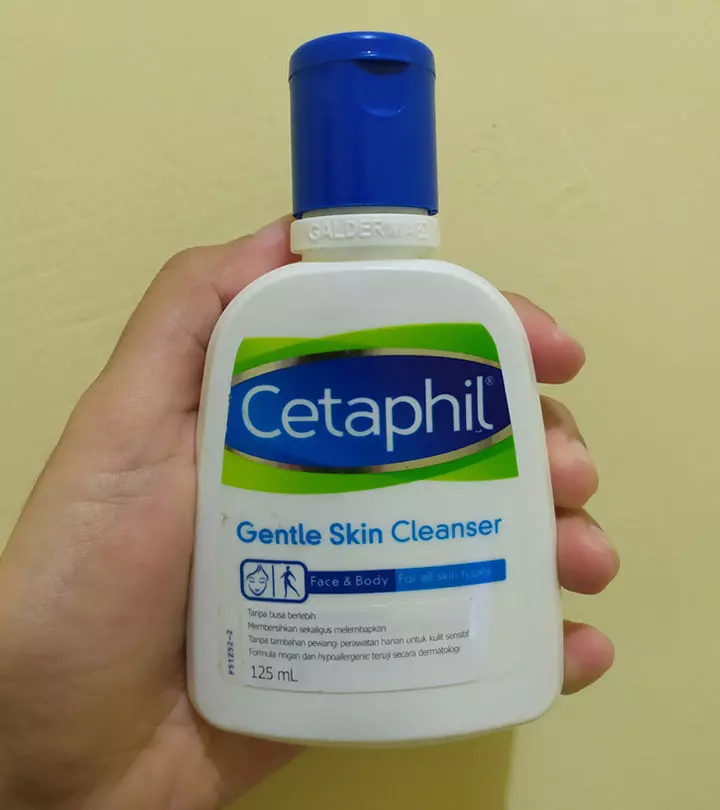
Image: Shutterstock
A fresh tattoo requires careful and proper aftercare for a successful recovery. That is why using the right moisturizer is key to your ink’s lasting vibrancy. When choosing your moisturizer, you might be wondering, “Is Cetaphil good for tattoos?” They offer gentle and skin-friendly formulations that are free of fragrances and other common irritants that can affect your fresh tattoo. Moreover, their wide range of moisturizers, from lightweight lotions to richer creams, allows you to tailor your aftercare routine to your skin’s needs as your tattoo heals. Whether you are a newbie or a tattoo enthusiast, Cetaphil might be what you are looking for. In this article, we will learn about the benefits of using Cetaphil for tattoos, their best products to include in your aftercare routine, and suitable alternatives. Scroll down to know more.
In This Article
How Does Cetaphil Work On A Tattoo?
Cetaphil has a reputation for its effectiveness, giving it a proper place among the available specialized tattoo aftercare products. Cetaphil products, particularly their cleansers and unscented lotions, provide a mild cleaning action that removes dirt and excess oil without disrupting the new tattoo’s vulnerable surface.
The secret to Cetaphil’s gentle touch lies in its formulation. Unlike typical soaps and cleansers that strip the skin of moisture, Cetaphil retains the skin’s essential moisture barrier. This nurturing approach helps to maintain an optimal environment for your tattoo to heal, minimizing the risk of disrupting the ink as it settles into your dermal layers.
Cetaphil’s role in the tattoo aftercare ritual is all about aiding the healing skin without prompting skin irritation. The lotions and cleansers are also excellent and effective choices for acne-prone skin or those showing signs of skin sensitivity after the tattooing process.
Cetaphil cleansers are also known for their low-lathering formula that means they work their way across the skin smoothly without vigorously rubbing the tattoo. This low-lather method may be beneficial during the initial healing stages when the skin is at its most sensitive. Follow the basics of tattoo aftercare such as rinsing with an unscented soap in lukewarm water and drying with a clean paper towel before using the moisturizing lotion.
Cetaphil is an excellent option for moisturizing your tattooed skin during the healing period. But what are some of its other benefits? Find out in the next section.
Key Takeaways
- Cetaphil’s gentle formula and lightweight texture create an optimal environment for healing and tattoo aftercare.
- Using both the Cetaphil gentle skin cleanser and moisturizing lotion can speed up the tattoo healing process.
- You can use Aquaphor for initial tattoo healing and Cetaphil lotion for long-term moisturization.
What Are The Benefits Of Using Cetaphil On Your Tattoo?
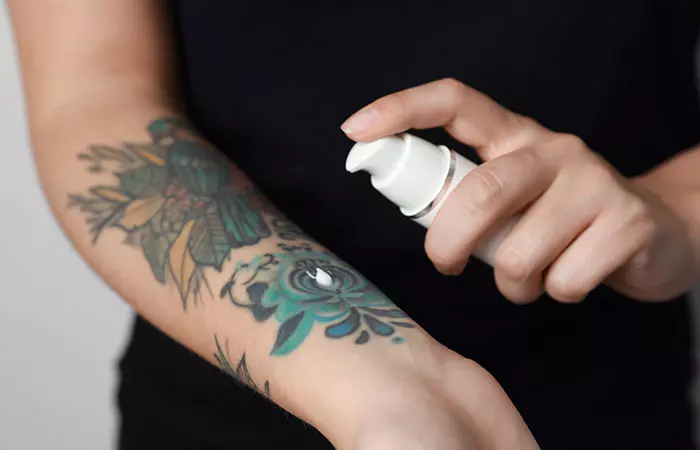
Using Cetaphil for tattoo aftercare regimen provides specific benefits that contribute to a hassle-free healing process:
- Is Suitable For Sensitive Skin: Cetaphil provides a hypoallergenic formula that is well-suited even for those with sensitive skin, reducing the risk of allergic reactions in a newly tattooed area. The fragrance-free lotion also helps those sensitive to strong scents.
- Is Easy To Use: The gentle lotions come in easy-to-use and readily accessible pumps, making your aftercare routine straightforward and manageable.
- Supports The Skin’s Natural Barrier: The presence of niacinamide, panthenol (pro vitamin B5), and glycerin in Cetaphil’s formulation can help maintain the skin’s natural barrier function (1), (2), (3). This helps protect against potential pathogens and contaminants and promotes faster recovery after the tattoo process.
- Is Non-Greasy: Using Cetaphil moisturizing lotion on a tattoo provides essential moisture to keep the tattooed skin from becoming overly dry, leading to itching and flaking. The body moisturizer is lightweight, allowing the skin to breathe and heal without being sticky or overly greasy.
- Is Non-Comedogenic: Cetaphil’s non-comedogenic ingredients are especially beneficial for tattooed skin that needs to remain clear of blockages to heal properly. Cetaphil promotes a healthy skin environment by not clogging the pores with heavy ingredients, allowing for the necessary exchange of air and natural oils. This is particularly important for densely tattooed areas where the skin needs to maintain its natural healing rhythm without the hindrance of trapped bacteria or excess product build-up.
- Is Gentle And Effective: The effectiveness of Cetaphil in removing grime and sweat gently is what makes it an excellent product for aftercare. It can clean the skin effectively without the aggressive components delaying the healing process or causing irritation.
- Creates An Optimal Healing Environment: Cetaphil helps keep the tattooed area clean and your skin hydrated that can help create an optimal healing environment. This enables the skin to repair itself efficiently, possibly reduce the healing time, and minimize the risk of infection and scarring. By choosing a fragrance-free option over scented lotions, you are less likely to experience signs of irritation that can derail the healing timeline.
- Gives Consistent Results: Cetaphil’s excellent quality and consistent results add a level of predictability to the tattoo healing process. You are less likely to experience unexpected skin reactions, allowing you to focus on the excitement of your new tattoo rather than worrying about complicated aftercare issues.
 Trivia
TriviaCetaphil’s mild and skin-friendly properties ensure your tattoo remains pristine during the healing phase. With Cetaphil, you are choosing a product that contributes to your tattoo’s immediate aftercare and long-term vibrancy. Scroll down to the next section for the best Cetaphil product for your tattoo aftercare.
Best Cetaphil Products For Tattoo Healing
The Cetaphil lineup has many products that are perfect for tattooed skin. Here are the standout choices for tattoo aftercare:
- Cetaphil Gentle Skin Cleanser
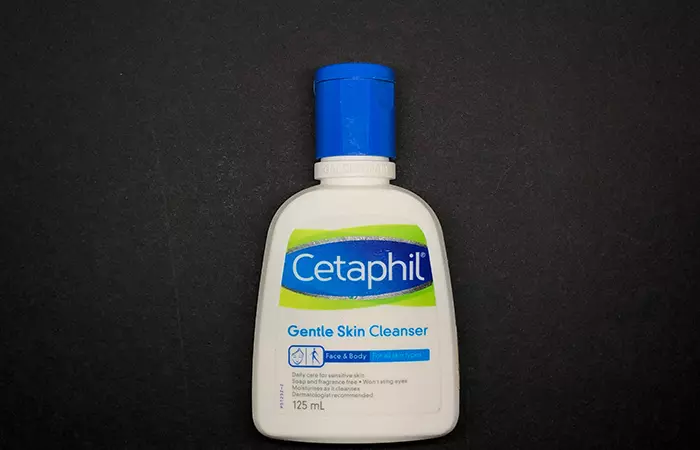
This cleanser is a favorite because it is formulated without fragrances and harsh chemicals that could irritate your fresh tattoo. This mild soap caters to the needs of a post-tattoo healing timeline, actively preventing moisture loss while promoting long-lasting hydration.
But the benefits don’t stop there. The Cetaphil gentle skin cleanser is suitable for all skin types, be it dry, oily, or combination skin. It keeps the tattoo area clean and helps maintain the skin’s hydration—two critical factors in tattoo healing.
Cetaphil’s gentle cleanser is a favorite among professional tattoo artists and tattoo enthusiasts. This tattoo cleanser works wonders with lukewarm or cool water and a soft pat down with a paper towel, a routine that is pivotal in the aftercare process.
Lastly, it is user-friendly. You apply a small amount to wet skin and massage it in gentle circles around the tattoo. Rinse with lukewarm water to avoid irritation. This method cleanses the area thoroughly while protecting the tattooed skin, ensuring it stays free from dirt and excess oils during the healing process. It simplifies your aftercare routine at a time when keeping things uncomplicated is key for proper healing.
Cetaphil gentle skin cleanser is a reliable choice to heal inked areas flawlessly. It offers a hassle-free path to keeping your tattoo hydrated and your delicate skin well-cared for. It stands out in the aftercare process as a gentle tattoo cleanser that is ideal for sensitive skin types but also effective in keeping your entire tattoo clean.
- Cetaphil Moisturizing Lotion
The Cetaphil moisturizing lotion works well with the cleanser as the perfect duo for your tattoo aftercare routine. While the use of tattoo lotions and antibacterial soap is key to the healing process, Cetaphil’s moisturizing lotion is one of the go-to products for those healing tattoos. The lotion helps maintain skin hydration by preventing the discomfort of dry skin and aiding the healing process.
Shea butter and hyaluronic acid are the key ingredients in the Cetaphil moisturizing that provide gentle cleansing while supporting skin repair post-tattoo. Unlike harsh soaps or scented lotions that may introduce additional chemicals, Cetaphil’s lotion removes impurities without leaving a greasy residue. Applying a pea-size amount can help maintain the protective layer of the skin without overwhelming it.
Whether it is the Cetaphil moisturizing cream or the Cetaphil baby moisturizing lotion, these products are integral for keeping the skin clean, making them an excellent choice for your aftercare lineup.
Aquaphor is generally recommended by tattoo artists for aftercare. But is it more suitable than Cetaphil lotion? Find out in the next section.
Aquaphor Vs. Cetaphil Lotion For Tattoos
Tattoo artists recommend Aquaphor for tattoos because it can create a thick, protective barrier and provide 24-hour hydration to the skin. This can be great right after getting your tattoo when the skin is still pretty tender.
However, Aquaphor’s thicker texture can leave your skin feeling sticky and greasy, especially if you have oily skin or your tattoo is in an area with poor ventilation.
Alyssa, a YouTuber, spoke about the products she used as part of her tattoo aftercare routine in her video. She said, “I usually use Aquaphor till it is pretty much healed. It’s really cheap. Your clothes will probably stick to it. Going to be honest about that (i).”
Cetaphil lotion, on the other hand, is lighter and hydrates the skin without overwhelming it. Many professional tattoo artists often advise customers to switch over to Cetaphil after the initial healing phase due to its gentle formulation.
 Pro Tip
Pro TipTaking care of your tattoo with Cetaphil products is easy if you remember to be gentle with your skin while it is healing from the tattoo needle. Fortunately, Cetaphil’s gentle formulation and non-greasy texture make it ideal for those with sensitive skin and a great option for tattoo care. While Aquaphor is often recommended by tattoo artists for proper tattoo care, Cetaphil is lighter and moisturizes the skin without leaving it greasy and heavy.
Remember, caring for your tattoo is not a difficult task. Keeping it clean, moisturizing it properly, and using gentle formulations are key to a speedy recovery and maintaining the tattoo’s sharpness and vibrancy.
Frequently Asked Questions
How often should I apply Cetaphil to my tattoo?
Apply Cetaphil 2 to 3 times a day after cleaning the tattoo.
Can I use Cetaphil on older tattoos?
Yes, Cetaphil is safe for older tattoos to keep them moisturized and vibrant.
Can Cetaphil be used on face tattoos?
Yes, Cetaphil’s gentle formulation and non-irritating products make it safe to use on face tattoos.
Can I wash my tattoo with the Cetaphil Face Wash?
Yes, you can wash your tattoo with the Cetaphil Face Wash. It is designed to be gentle on the face, which is typically more sensitive. Ensure to use a light touch and rinse thoroughly without scrubbing the tattooed area to avoid skin irritation.
Cetaphil is a great choice once the tattoo starts healing. It helps maintain the tattoo’s vibrancy and keep the skin moisturized. Check out this informative video about Cetaphil and its uses in tattoo aftercare.
Personal Experience: Source
StyleCraze's articles are interwoven with authentic personal narratives that provide depth and resonance to our content. Below are the sources of the personal accounts referenced in this article.
(i) How to take care of a healing tattoo | Alyssa Nicole |https://www.youtube.com/watch?v=VgqpwhTztDM
References
Articles on StyleCraze are backed by verified information from peer-reviewed and academic research papers, reputed organizations, research institutions, and medical associations to ensure accuracy and relevance. Read our editorial policy to learn more.
- A Review of the Range of Effects of Niacinamide in Human Skin
https://www.researchgate.net/publication/286270242_A_Review_of_the_range_of_effects_of_niacinamide_in_human_skin - A new topical panthenol-containing emollient: Results from two randomized controlled studies assessing its skin moisturization and barrier restoration potential, and the effect on skin microflora
https://pubmed.ncbi.nlm.nih.gov/27425824/ - Glycerol and the skin: holistic approach to its origin and functions
https://pubmed.ncbi.nlm.nih.gov/18510666/
Read full bio of Ashutosh Bairagi
Read full bio of Aparna Harry
Read full bio of Eshna Das
Read full bio of Pahul Nanra





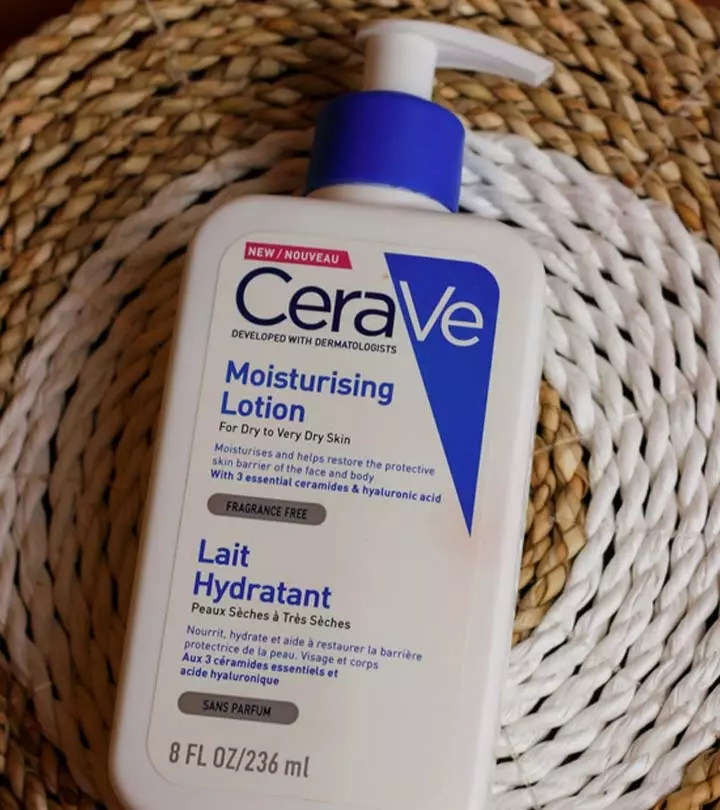
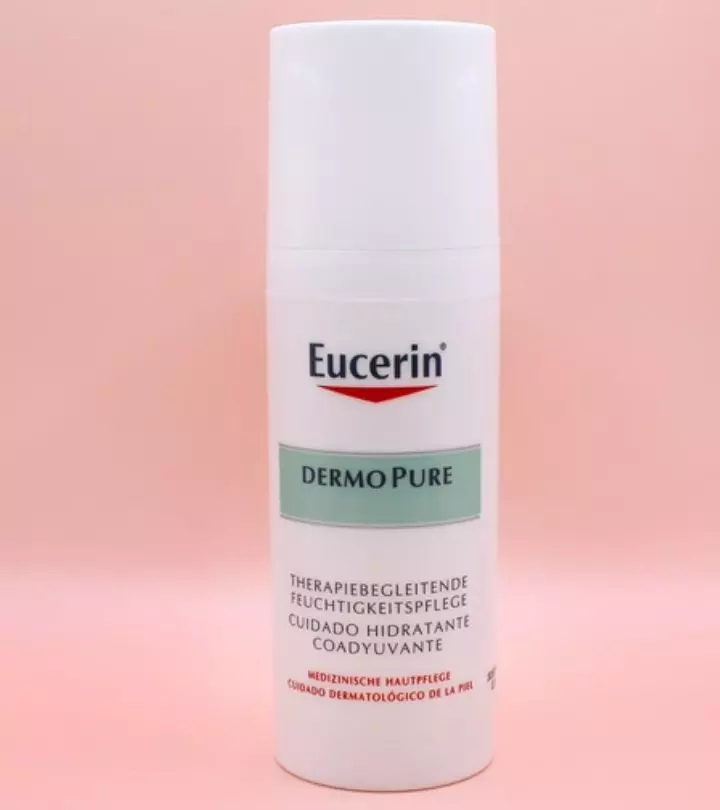
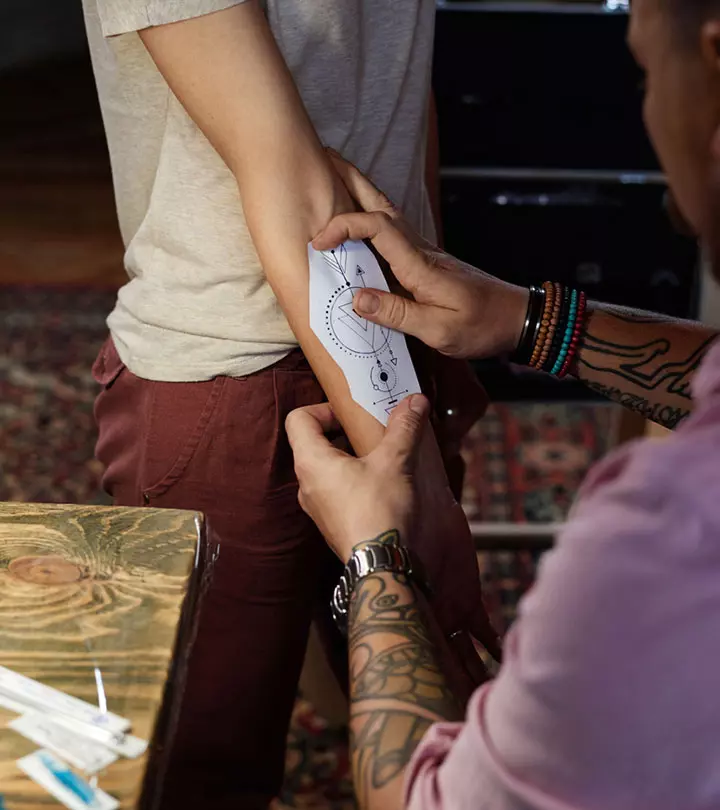
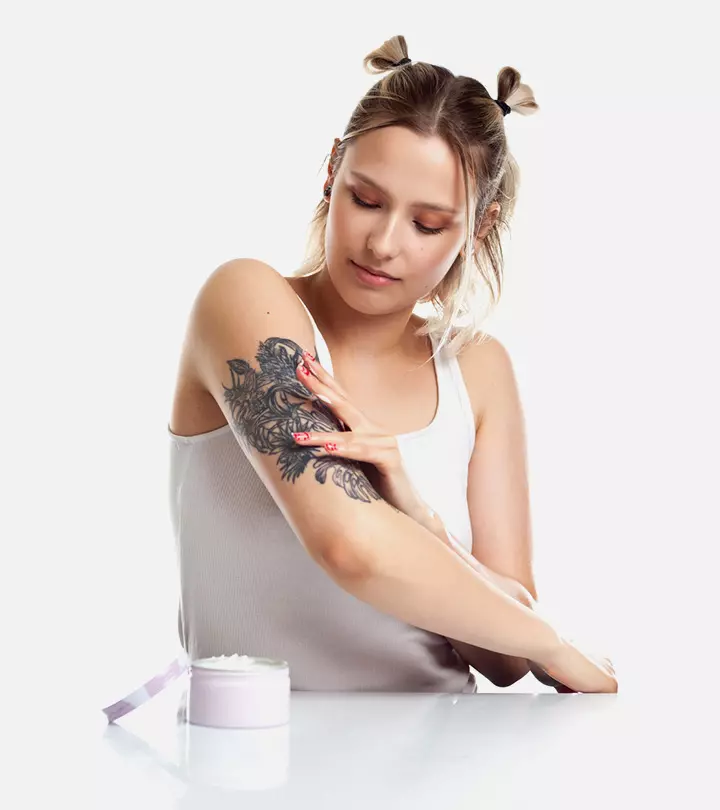
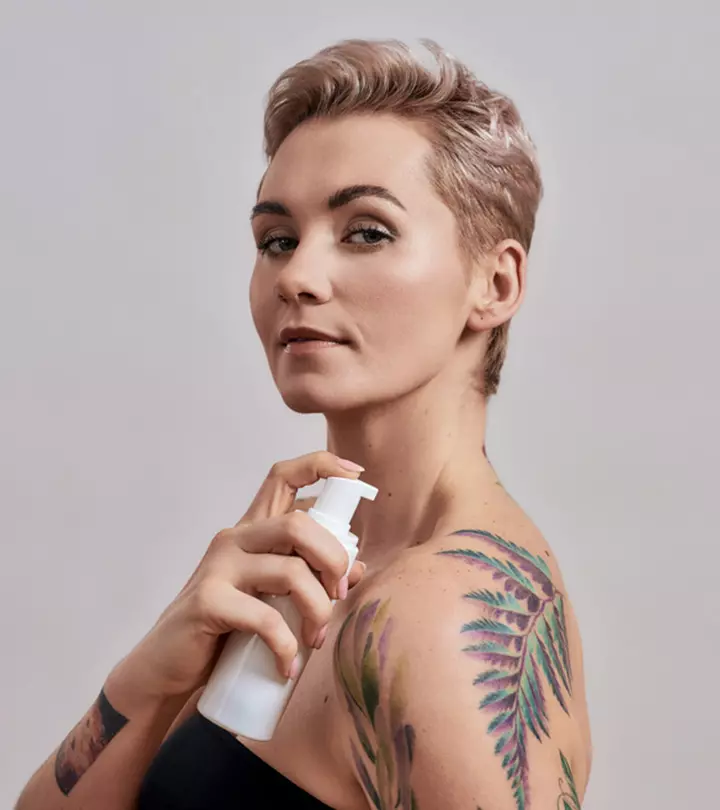

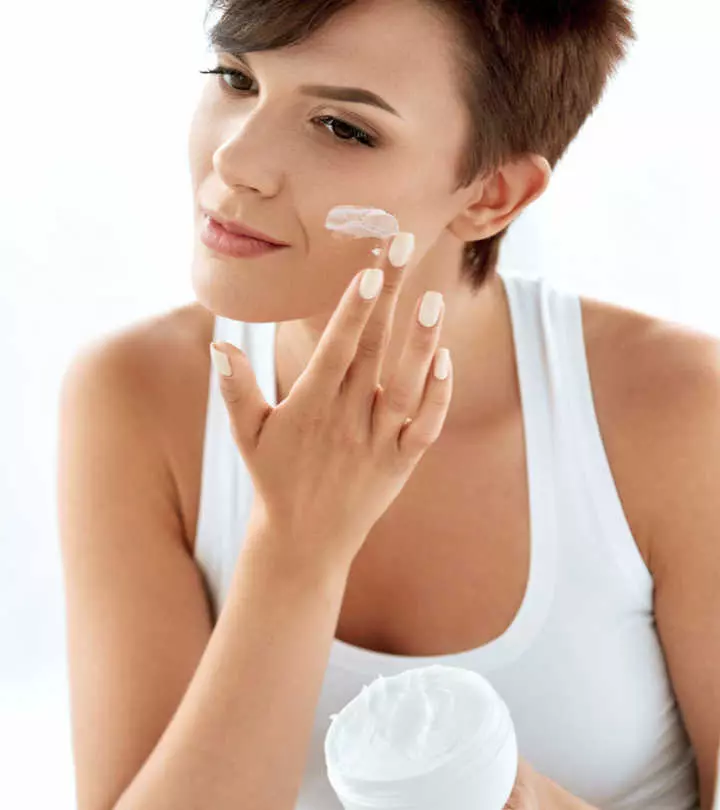


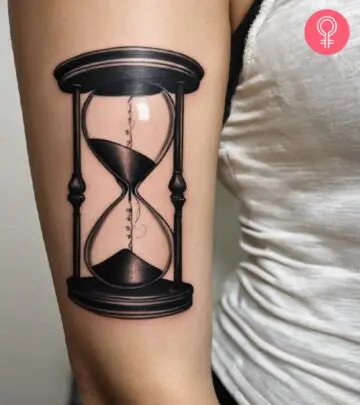
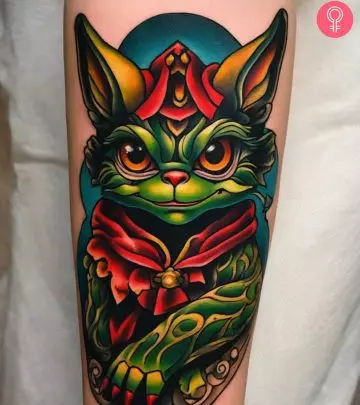
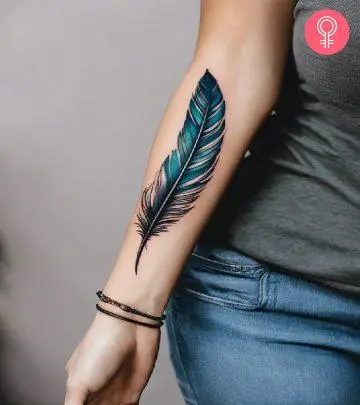

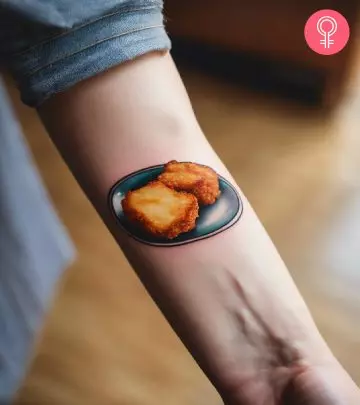
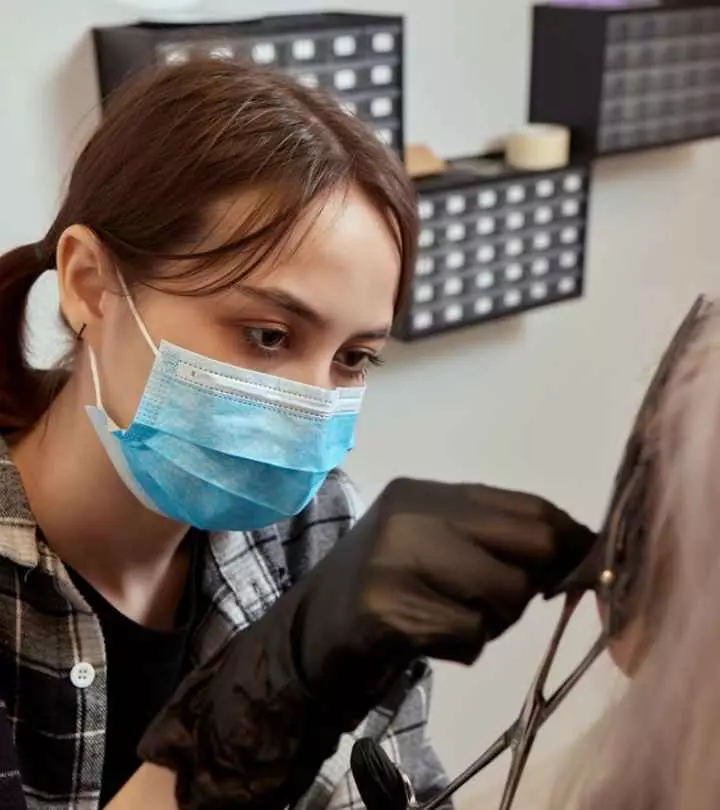
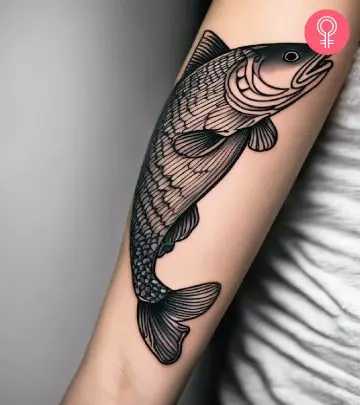

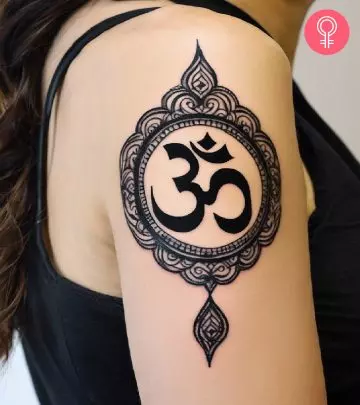
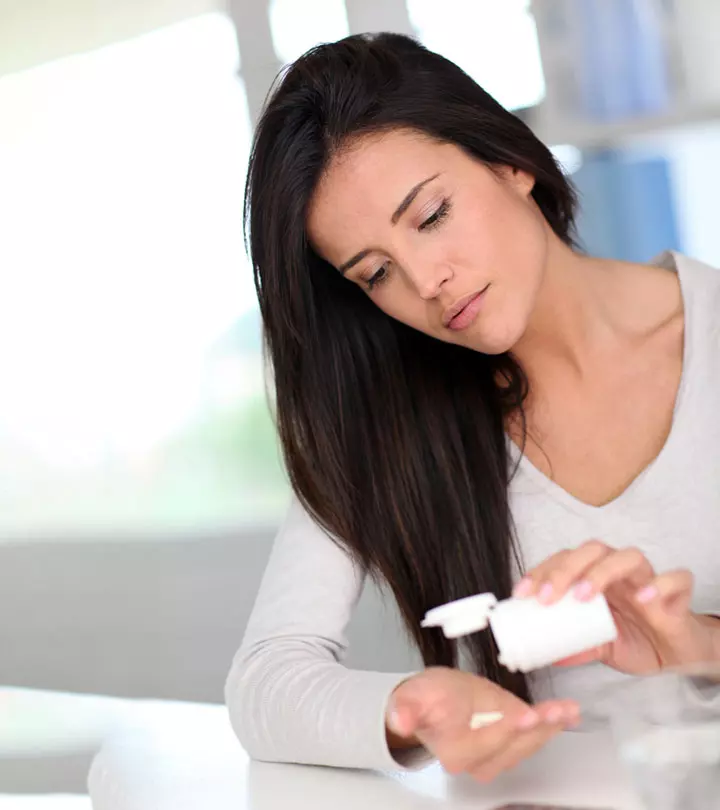
Community Experiences
Join the conversation and become a part of our empowering community! Share your stories, experiences, and insights to connect with other beauty, lifestyle, and health enthusiasts.